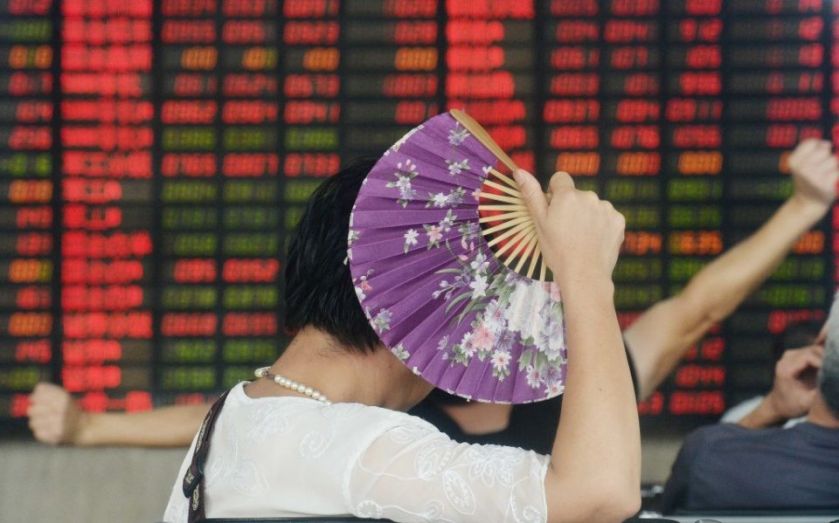China’s stock market turmoil could spell bad news for London flotations

When China sneezes, IPO-hungry investment bankers in London catch colds: it’s not quite as catchy as the original epithet, but it contains a distinct ring of truth.
China’s stock market turmoil is unlikely to be a short-term phenomenon: the schizophrenic exhortations of Beijing to simultaneously beware of, and embrace, the ultimate expression of a capitalist economy have seen to that.
In recent weeks the panicked frequency of China’s market interventions have had the logical effect of fuelling anxiety about both the economy and the anger of a rising class of retail investors.
This isn’t new. China’s economy has been slowing for a year while its stock markets were heading into the stratosphere. It’s odd that that decoupling attracted so little attention.
That’s why this week’s version of Black Monday in London and New York looks overblown. This isn’t 2008, after all: the banking system is not on the verge of outright collapse, and global growth is not falling off a cliff.
That might not provide comfort to the horde of bosses whose hopes of going public risk being dashed.
Take Worldpay, for example. A UK-based company with stellar earnings performance would in normal times be entitled to expect a premium public market valuation.
Yet sources say that Advent International and Bain Capital, its current owners, are likely to expedite efforts to secure a sale given the equity markets backdrop. Other IPO candidates may have more limited options. Advent, which also owns the share registrar business Equiniti, has, bankers say, added Citi to its flotation syndicate after aborting a private sale process.
Clydesdale, the Australian-owned bank, and Hastings Direct are others slated to launch IPOs before 2016.
It is certainly too early to sound the death knell for the autumn pipeline, but some tough calls are going to have to be made.
OSBORNE KEEPS ’EM GUESSING ON TAX
What do Dave Lewis (Tesco), Jayne-Anne Gadhia (Virgin Money) and Philip Monks (Aldermore) have in common?
They’ve all removed George Osborne from their Christmas card list since the Budget. Osborne’s corporation tax surcharge for lenders earning more than £25m in profit has united both dominant and challenger banks.
What’s even more certain to raise their ire is that some calculations starting to circulate in the City suggest the Treasury will yield far more from the surcharge than it forecast.
That gives Osborne the opposite problem to the one he had from the Bank Levy, the persistent increases in which rendered laughable his commitment to a stable tax environment.
He appears to have offered an olive branch to the challengers. In a letter to them offering a meeting with Charles Roxburgh on 11 September, he said the surcharge would not be altered “in this fiscal year”. That sounds like the chancellor’s paving the way for yet another U-turn on bank taxation in 2016. He must be getting dizzy by now.
DELEGATION DITHERING
The trade delegation which accompanied Philip Hammond on his visit to Tehran last weekend could have been accommodated comfortably on a small private jet.
Given that rival European governments have taken Airbus-sized complements to Iran ahead of sanctions being lifted, it’s not ideal that the UK effort looks so poor by comparison.
Whitehall officials say another delegation led by Lord Maude, the trade minister, will visit the country again this autumn. They should try to fill a bigger plane.